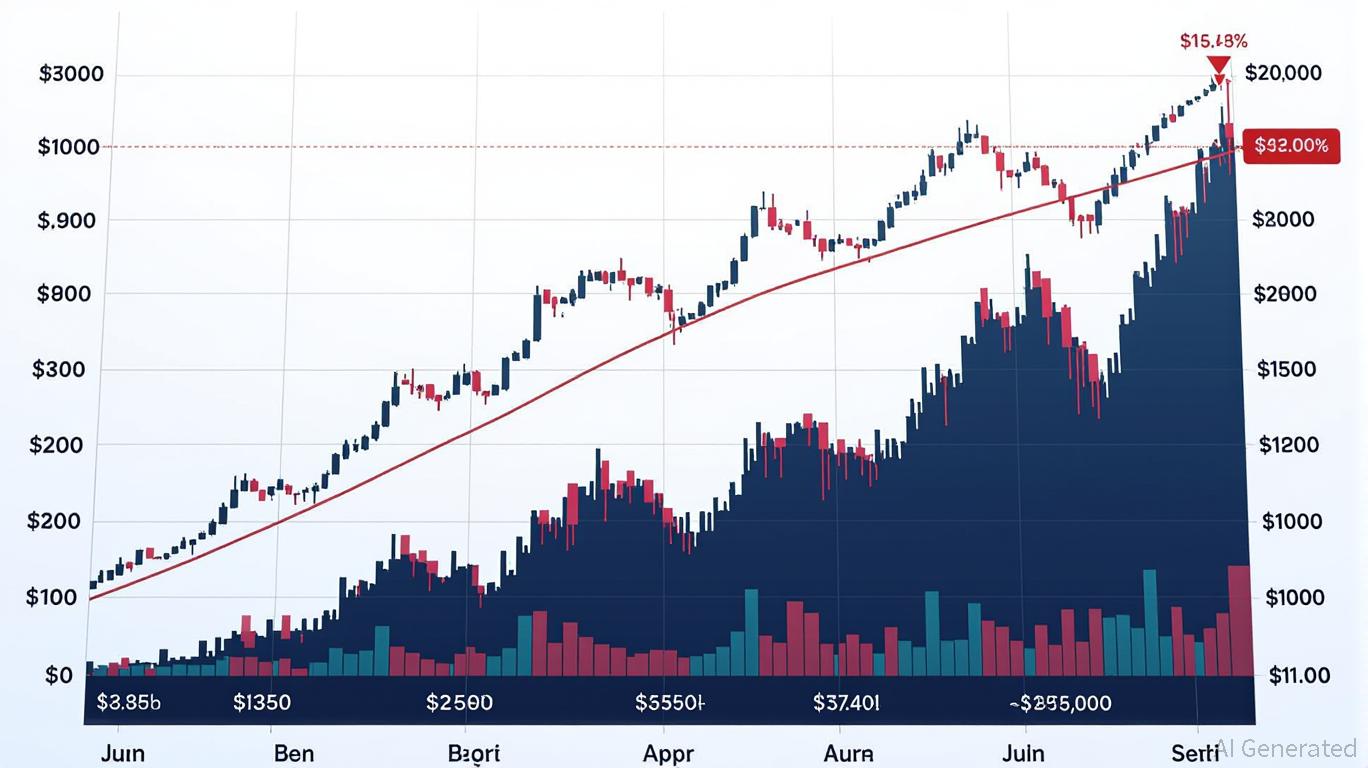Australia Connects Conventional and Digital Finance Through Groundbreaking Cryptocurrency Regulations
- Australia introduces 2025 Digital Assets Framework Bill, requiring crypto exchanges and custodians to obtain AFSL and operate under ASIC oversight. - The legislation creates two license types: "digital asset platform" for crypto trading and "tokenized custody platform" for real-world asset tokens, with tailored compliance standards. - Small operators with <$5,000 per customer and <$10M annual volume get lighter requirements, aiming to balance innovation with consumer protection. - Projected to unlock $24
Australia Advances Comprehensive Crypto Regulation
Australia is making major strides in regulating its cryptocurrency industry with the introduction of the Corporations Amendment (Digital Assets Framework) Bill 2025. This proposed legislation requires crypto exchanges and digital asset custodians to secure an Australian Financial Services Licence (AFSL) and operate under the oversight of the Australian Securities and Investments Commission (ASIC).
Unveiled by Treasurer Jim Chalmers and Financial Services Minister Daniel Mulino, the bill marks the nation’s first attempt at a unified regulatory system for companies managing digital assets on behalf of clients. The initiative seeks to bring crypto businesses in line with established financial sector standards and to address vulnerabilities exposed by incidents like the FTX collapse.
New Licensing Categories and Regulatory Standards
The legislation introduces two distinct types of licenses: “digital asset platform” and “tokenized custody platform.” These categories reflect the varied responsibilities of firms handling customer assets. Digital asset platforms, which enable trading and storage of cryptocurrencies such as Bitcoin and stablecoins, must comply with ASIC’s rules for custody and settlement. Meanwhile, tokenized custody platforms will oversee digital tokens that represent real-world assets like property, bonds, or commodities, requiring operators to hold the actual assets and issue redeemable tokens in accordance with the new regulations.
Assistant Treasurer Daniel Mulino highlighted that the reforms are designed to regulate the companies managing customer assets, rather than the underlying technology, ensuring consistent obligations for similar financial activities.

Penalties, Exemptions, and Innovation Support
The bill introduces tough penalties for non-compliance, including substantial fines for firms that fail to protect client assets or meet ASIC’s standards. These measures aim to close loopholes that previously allowed unregulated platforms to operate without proper financial oversight.
To encourage innovation, smaller platforms—those handling less than $5,000 per customer and under $10 million in annual transactions—will be exempt from full licensing requirements. This approach is intended to support experimentation and the development of proof-of-concept projects without imposing the costs of full compliance. James Volpe, director of Web3 education company uCubed, described this as a “sandbox” environment for new ideas.
Economic Impact and Industry Response
The government estimates that the new regulatory framework could generate up to $24 billion in annual productivity by attracting institutional investors and building confidence in digital finance. The bill aims to balance risk management with the promotion of innovation by integrating digital assets into Australia’s broader legal and financial systems, ensuring transparency and accountability.
While industry participants have largely welcomed the reforms, some have requested clearer definitions and simpler regulations during consultations. Minister Mulino described the bill as a foundational element of the government’s crypto strategy and a vital move toward establishing Australia as a leader in digital finance. The bill’s swift progress through Parliament highlights its importance, with further detailed discussions anticipated.
Global Context and Future Outlook
Australia’s regulatory approach aligns with trends seen in regions such as the European Union and Singapore, where authorities are formalizing digital asset frameworks to balance innovation with consumer protection. As the bill moves closer to becoming law, its effectiveness will depend on its ability to evolve alongside new technologies and maintain fair conditions for all crypto businesses.
Disclaimer: The content of this article solely reflects the author's opinion and does not represent the platform in any capacity. This article is not intended to serve as a reference for making investment decisions.
You may also like
Trump’s Bet on Tariff Profits: Legal and Financial Obstacles Ahead
- Trump proposes using $3 trillion in projected tariff revenue to fund $2,000 dividends for U.S. households earning under $100,000. - Analysts question feasibility due to current $195B annual tariff collections and conflicting fiscal priorities like the One Big Beautiful Bill. - Supreme Court review of emergency tariff powers and Treasury warnings about double-counting funds add legal uncertainty to the plan. - Critics highlight inflation risks, political polarization over income thresholds, and economic f
Bitcoin Updates Today: Bitcoin Derivatives Aim for Greater Independence as Nasdaq Pursues $1 Million Growth
- Nasdaq seeks SEC approval to raise IBIT Bitcoin options limits from 250,000 to 1,000,000 contracts, aligning with major equities. - Market participants criticize current caps as restrictive, with IBIT now surpassing Deribit as the largest Bitcoin options market by open interest. - Nasdaq analysis claims 1M-contract limit poses minimal systemic risk (0.284% of total Bitcoin supply) while enabling institutional hedging strategies. - SEC's December 17 review deadline could catalyze 25-30% liquidity growth,
Cardano News Update: Worldwide ADA ETPs Experience Growth While U.S. Regulators Delay Approval
- Cardano (ADA) gains institutional traction as Europe/Asia launch ADA ETPs, while U.S. regulators delay ETF approvals amid government shutdown uncertainty. - Whale accumulation of 348M ADA tokens and $0.50 support level highlight market optimism, though technical indicators like the death cross raise bearish concerns. - Cardano's Wirex partnership introduces crypto cashback cards and DeFi/NFT growth, yet Ethereum maintains dominance in decentralized finance ecosystems. - Global regulatory divergence persi
Bitcoin Leverage Liquidation Patterns: Managing Risk Amidst Crypto Market Volatility
- 2025 crypto liquidation events exposed leverage risks, with $2B+ daily losses from Bitcoin’s volatility and thin liquidity. - Structural flaws like over-leveraged positions and inadequate buffers worsen cascading price declines during crashes. - Panic selling and herd behavior amplified losses, as seen in Ethereum and Solana’s $239M combined liquidations. - Experts urge diversified portfolios, automated tools, and liquidity-aware strategies to mitigate leverage-driven risks.
